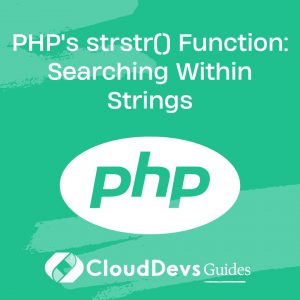PHP Q & A
What is a PHP session?
In PHP, a session is a mechanism that allows you to maintain stateful data across multiple HTTP requests for a specific user. Sessions are essential for building web applications that require user authentication, shopping carts, and personalized user experiences. Here’s a detailed explanation of PHP sessions:
Session Initialization:
- Session Start: A session begins when a user visits a web page that calls the `session_start()` function. This function initializes or resumes a session, generating a unique session ID for the user.
Session Data Storage:
- Data Persistence: Once a session is started, you can store data in the `$_SESSION` super global array. This array is used to store variables and values that persist across multiple requests within the same session.
```php session_start(); $_SESSION['username'] = 'John'; ```
Unique Session Identification:
- Session ID: A session ID is a unique identifier generated for each user session. It is typically stored as a cookie on the user’s browser or passed as a URL parameter. This ID allows the server to associate subsequent requests with the correct session data.
Session Lifetime and Expiration:
- Session Timeout: Sessions have a defined lifetime, which can be set in the PHP configuration (`session.gc_maxlifetime`) or with the `session_set_cookie_params()` function. When a session remains inactive for a specified period, it expires.
Common Use Cases:
- User Authentication: Sessions are commonly used to track user login status. For example, after a successful login, a user’s authentication status can be stored in a session variable.
- Shopping Carts: In e-commerce applications, sessions can be used to maintain shopping cart contents across multiple page visits.
- Personalization: Session data can be used to personalize user experiences by storing preferences or user-specific information.
Security Considerations:
- Session Security: To ensure session security, session IDs should be generated securely and not exposed in URLs. It’s also crucial to validate and sanitize session data to prevent security vulnerabilities.
PHP sessions are a fundamental mechanism for maintaining user state and data persistence in web applications. They enable developers to create interactive and personalized web experiences by storing and managing user-specific information across multiple HTTP requests.

Previously at

Full Stack Engineer with extensive experience in PHP development. Over 11 years of experience working with PHP, creating innovative solutions for various web applications and platforms.






